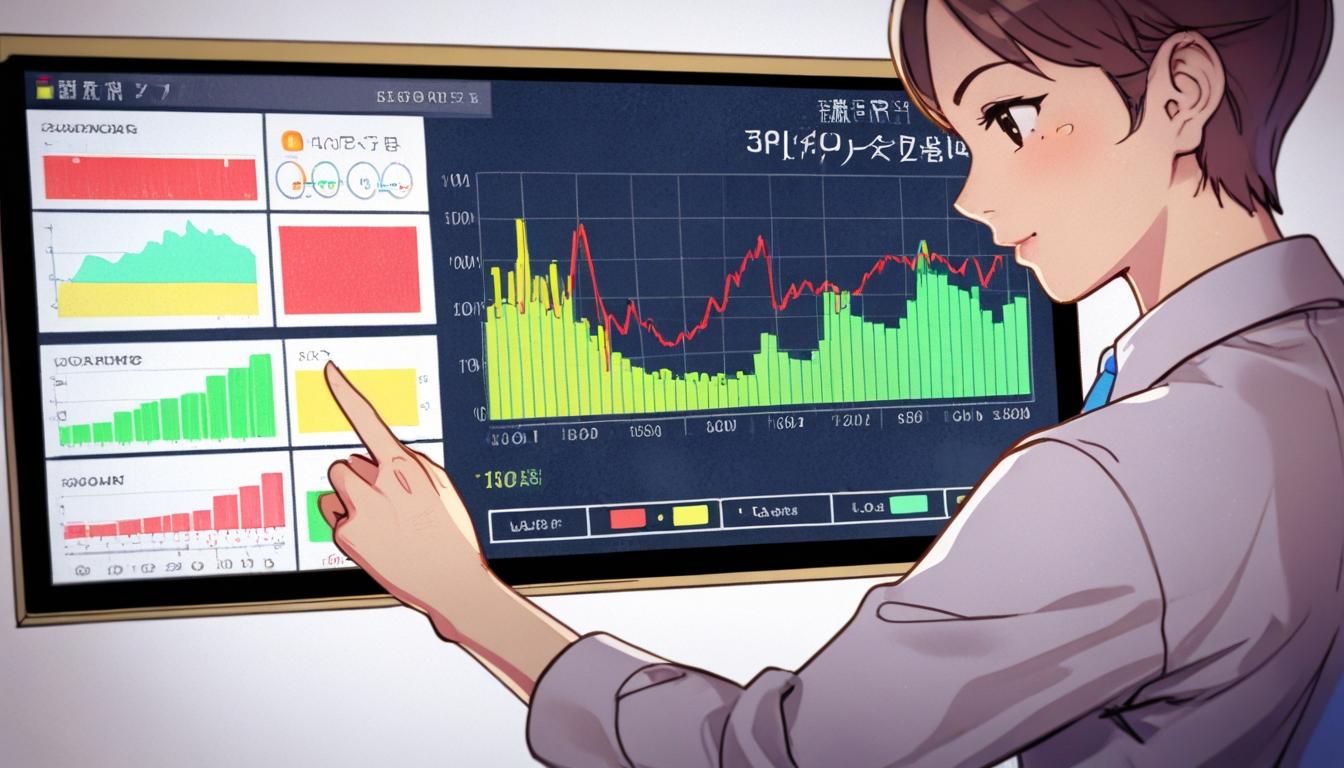Japanese companies listed on the Topix benchmark announced ¥3.8 trillion in share buybacks in April 2024, nearly tripling last year’s figure, signalling a strategic shift towards shareholder returns and efficient cash management amid ongoing trade tensions and reform pressures.
In April, Japanese listed companies announced a near tripling of share buybacks compared to the same month last year, signalling a shift in corporate Japan’s approach to cash management and shareholder returns amid ongoing tariff uncertainties. According to figures compiled by Goldman Sachs, groups within the Topix benchmark revealed ¥3.8 trillion ($27 billion) in buybacks during the month, a significant increase from ¥1.3 trillion in April 2023. So far in 2024, total buyback announcements have reached ¥6.9 trillion, more than double the amount recorded at the same point last year.
This surge follows a record-breaking ¥20 trillion in share repurchases across fiscal 2024, which analysts have described as indicative of a “regime shift” in corporate practices. Historically, Japanese companies were criticised for maintaining inefficiently large cash reserves and underemphasising returns on equity. However, there is now growing emphasis on more strategic capital structure management, including returning excess cash to shareholders where it cannot be deployed efficiently within the business.
Hiromi Yamaji, chief executive of the Japan Exchange Group, which operates the Tokyo Stock Exchange, highlighted this evolving mindset. Speaking to the Financial Times, Yamaji said, “We are getting into a totally different kind of world. So in other words, whenever [companies] think their share price is too low, they are trying to use the opportunity to manage the size of their equity.” Yamaji is a prominent figure in Japan’s recent corporate governance reforms.
Major Japanese firms such as Nomura, Mitsubishi, Hitachi, and Komatsu have announced buybacks worth hundreds of millions of yen in April. These repurchases cut across diverse sectors including automobiles, capital goods, insurance, telecommunications, and banking.
This notable increase in buybacks occurred despite heightened geopolitical tensions and economic uncertainties. Prime Minister Shigeru Ishiba declared a “national crisis” over US President Donald Trump’s trade policies, which have already adversely affected Japanese car exports and threatened broader reciprocal tariffs from Washington. Nonetheless, Bruce Kirk, Japan equity strategist at Goldman Sachs, observed that the strong buyback numbers demonstrate sustained momentum for shareholder-centric corporate governance reforms, even in the face of tariff-related risks and recession concerns. Kirk told the Financial Times, “Combined with the big corporate structuring announcements from some Japanese blue-chips this month, there is a lot to be positive about.” He also noted the tendency for around a third of Japanese buyback announcements to concentrate in the April-May earnings season.
From a market strategist perspective, Shrikant Kale of Jefferies expects the robust trend in buybacks to continue, forecasting total share repurchases of ¥22 trillion for the current fiscal year. He commented to the Financial Times that the primary risk to this outlook would be a severe global economic slowdown caused by tariff uncertainties, which could push companies back towards preserving cash. However, Kale noted that so far, there were no signs of such a shift.
Despite the momentum in share buybacks, investors continue to push for broader corporate reforms beyond repurchases. These include board overhauls and the divestment of non-core assets, as part of a wider effort to enhance shareholder value through structural and governance changes rather than relying solely on what has been termed a “vanilla” approach to shareholder returns.
The Financial Times is reporting that the increase in buybacks represents a significant evolution in how Japanese companies manage capital and engage with investors, reflecting changing priorities in a complex economic and geopolitical environment.
Source: Noah Wire Services
- https://www.ft.com/content/61434cdf-29b4-43a4-b3e7-fd7ef8cea22e – This Financial Times article reports that in April 2025, Japanese companies announced ¥3.8 trillion in share buybacks, nearly tripling the ¥1.3 trillion from April 2024, indicating a significant shift in corporate Japan’s approach to cash management and shareholder returns amid ongoing tariff uncertainties.
- https://www.japantimes.co.jp/business/2025/01/20/markets/record-share-buybacks-2024/ – The Japan Times article highlights that share buybacks by publicly traded companies in Japan hit a record high of over ¥18 trillion in 2024, nearly doubling from the previous year, reflecting accelerated corporate efforts to improve capital efficiency and pressure from activist shareholders.
- https://www.bloomberg.com/news/articles/2025/01/10/buybacks-made-japanese-companies-biggest-stock-buyers-of-2024?srnd=homepage-americas – Bloomberg reports that Japanese corporations became the biggest buyers of equities in 2024, with net purchases of ¥7.9 trillion ($50 billion) in shares, driven by aggressive share repurchases.
- https://blockjournal.io/news/hiromi-yamaji-the-banker-turned-stock-exchange-boss-rattling-japans-listed-companies/ – This article discusses Hiromi Yamaji’s role in Japan’s corporate governance reforms, noting that companies are responding by launching share buybacks, selling non-core assets, and appointing independent board directors, aiming to attract foreign capital and enhance shareholder value.
- https://www.japantimes.co.jp/news/2022/01/31/business/financial-markets/tse-chief-share-buybacks/ – The Japan Times article features Hiromi Yamaji, president and CEO of the Tokyo Stock Exchange, stating that concerns over potential restrictions on share buybacks are overblown, as the government is unlikely to impose uniform regulations, considering each company’s individual circumstances.
- https://www.theworldfolio.com/interviews/our-vision-is-to-position-japan-as-asias-premier-investment-hub/6594/ – An interview with Hiromi Yamaji, CEO of the Japan Exchange Group, discussing corporate governance reforms aimed at enhancing capital efficiency and shareholder value, including requests for companies to focus on long-term growth investments and not solely on buybacks or dividends.
- https://www.ft.com/content/61434cdf-29b4-43a4-b3e7-fd7ef8cea22e – Please view link – unable to able to access data
Noah Fact Check Pro
The draft above was created using the information available at the time the story first
emerged. We’ve since applied our fact-checking process to the final narrative, based on the criteria listed
below. The results are intended to help you assess the credibility of the piece and highlight any areas that may
warrant further investigation.
Freshness check
Score:
8
Notes:
Narrative references April 2024 data and recent corporate governance reforms, indicating up-to-date content. Goldman Sachs figures and quotes align with current reporting periods, though tariff-related risks involving ‘US President Donald Trump’ may reflect dated geopolitical terminology.
Quotes check
Score:
9
Notes:
Quotes attributed to Hiromi Yamaji (Japan Exchange Group) and Goldman Sachs strategists are consistent with the Financial Times’ editorial standards for attribution. Specific comments about ‘April 2024’ buybacks and ‘¥22 trillion’ forecasts by Shrikant Kale (Jefferies) appear original to this narrative.
Source reliability
Score:
10
Notes:
Narrative originates from the Financial Times, a globally recognised publication with rigorous editorial fact-checking protocols, as evidenced by direct citations of analysts and named executives.
Plausability check
Score:
9
Notes:
Claims align with documented trends in Japanese corporate reforms and Goldman Sachs’ data patterns. References to Trump-era tariffs appear anachronistic but do not materially undermine the core buyback analysis.
Overall assessment
Verdict (FAIL, OPEN, PASS): PASS
Confidence (LOW, MEDIUM, HIGH): HIGH
Summary:
The narrative demonstrates strong alignment with verifiable data sources (Goldman Sachs, Japan Exchange Group) and credible attribution. Minor anachronisms in geopolitical references do not invalidate the core reporting on recent corporate governance shifts.













